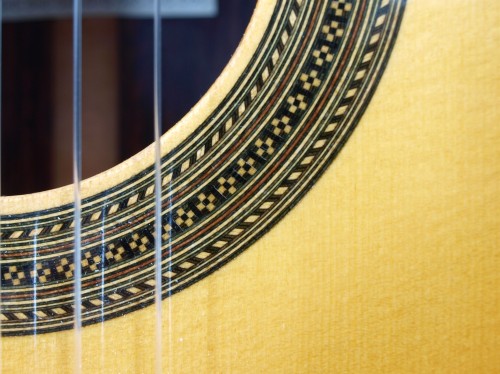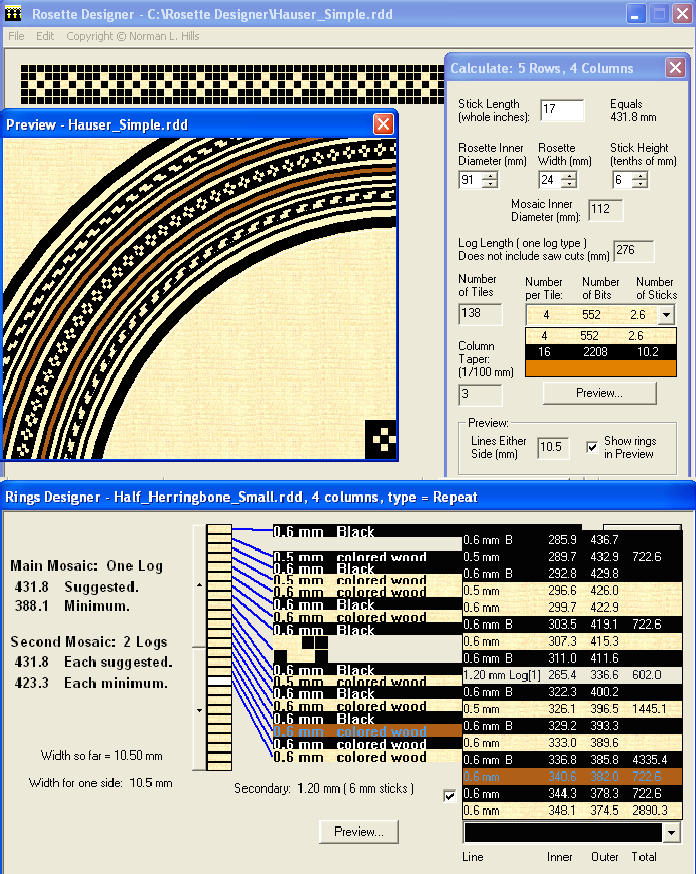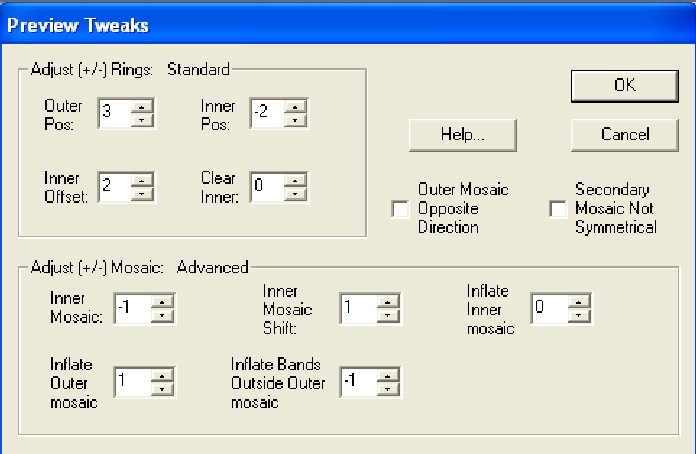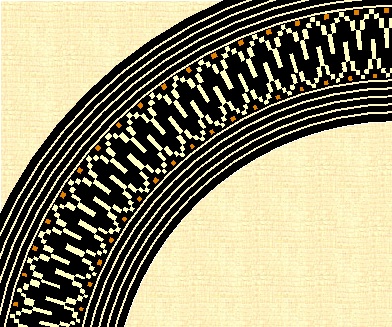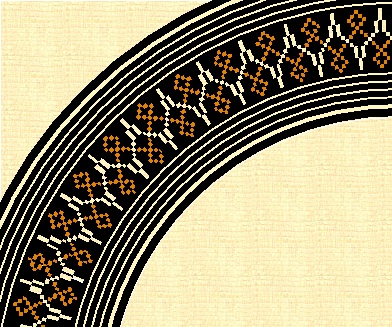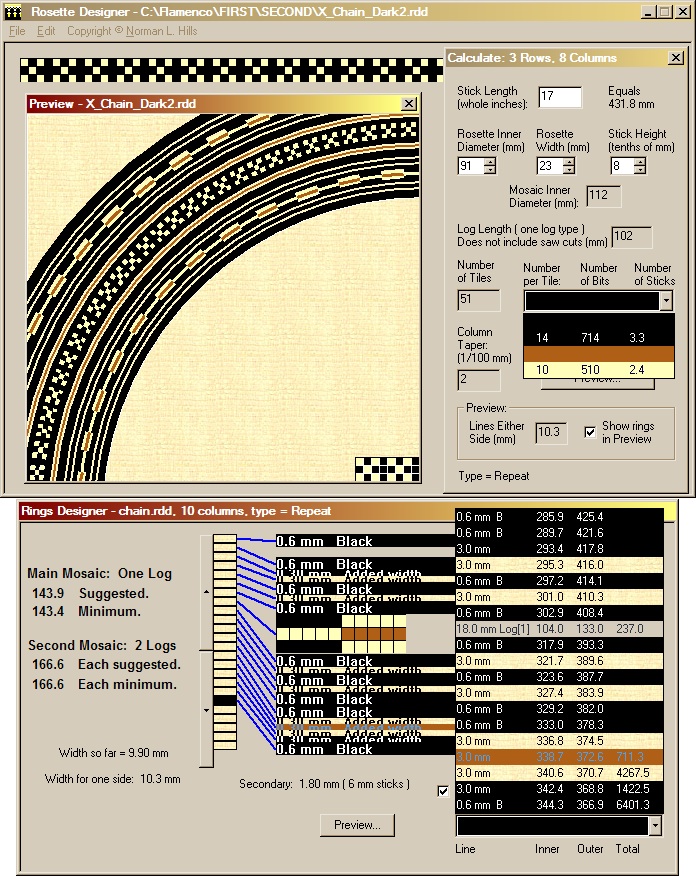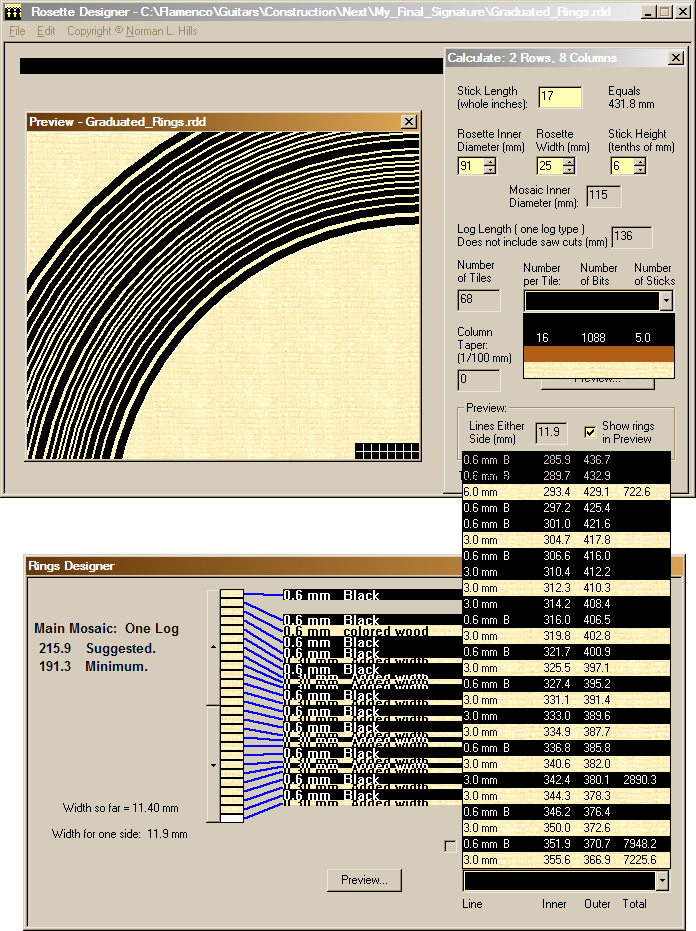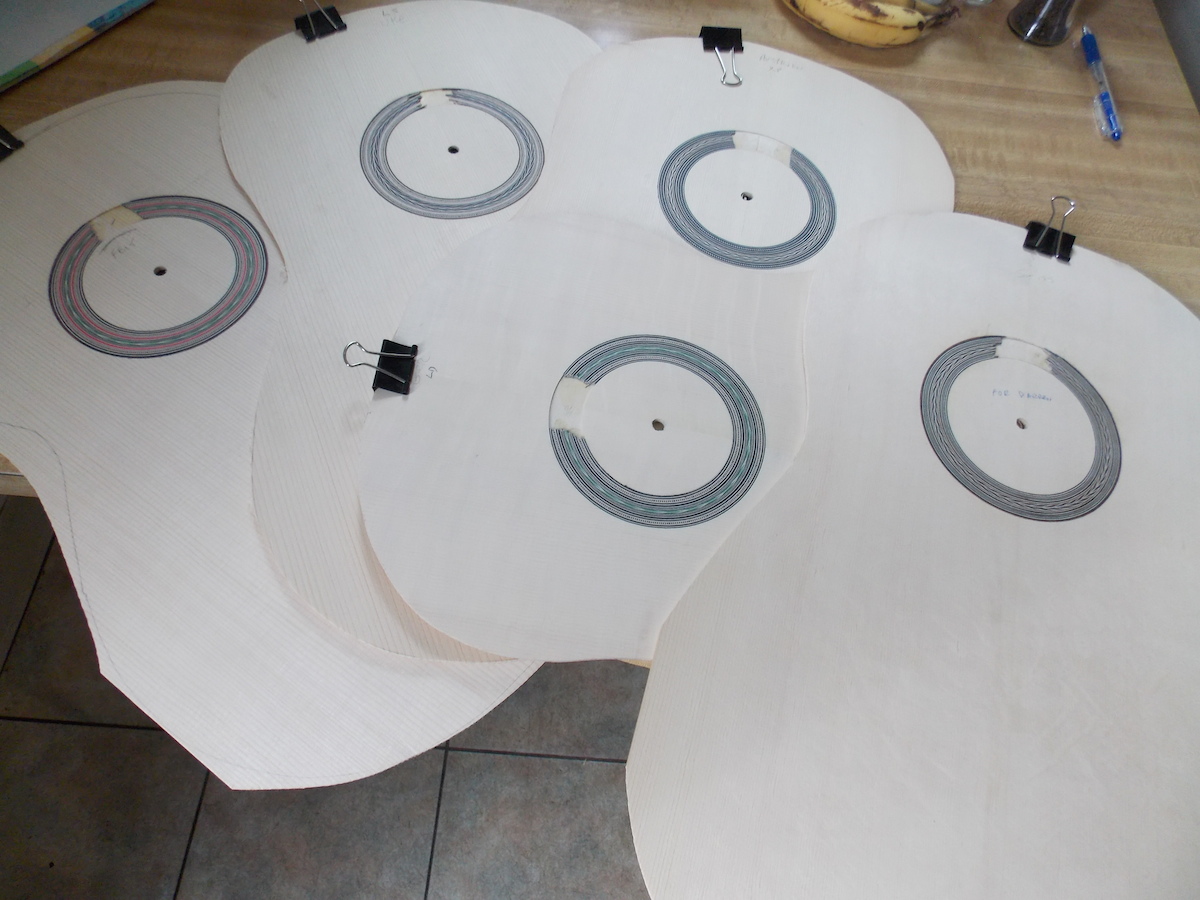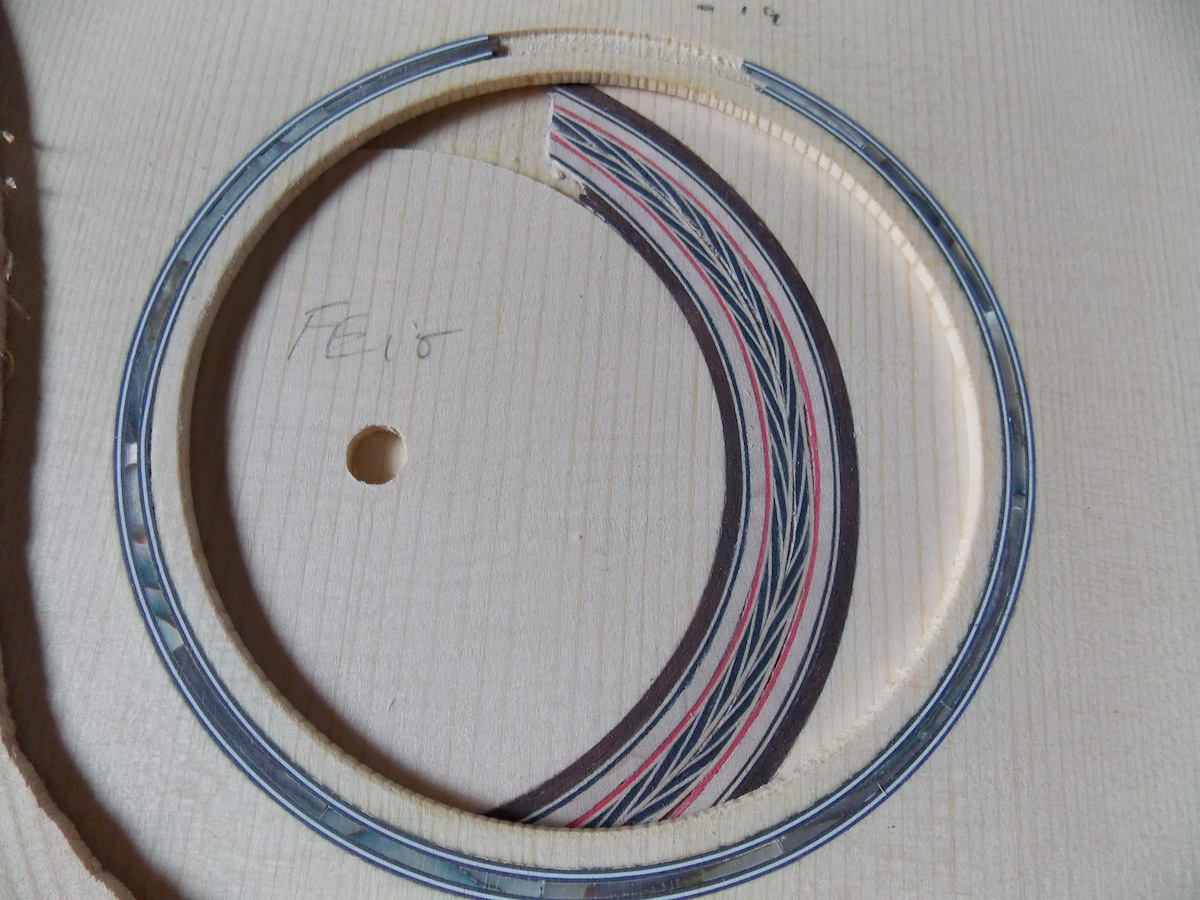|
mmenk -> working with rosette designer (Jan. 15 2016 2:38:55)
|
Norman,
That is fantastic. You have come up with a beautiful program, dedicated to the most artistic decoration on the guitar, and have freely shared it with all of us.
Thank you for your good work and generosity.
I am still learning how to use it to it's full potential and I have a lot to learn. Perhaps this thread will help us all to make the best use of the program.
My first question: when the program opens. it is the field for the central mosaic theme with a menu for colors and grid layout, then if you want to edit, or preview we find a screen to do the rings. There are some functions available to flip and vary the image, which is a great creative tool, please describe and demonstrate how to manipulate these functions.
Perhaps a short tutorial on how to make this program really sing.
What is the best way to integrate the rings with the mosaic, and also can we build a library of common styles, like herringbone, zig zags, alternating lines, dots, etc and drag and drop or stretch some motifs. Any help will be profound, and i would encourage all users of this program to offer feed back and suggestions to help us optimize what we have available. I realize that this is asking a lot from donor, but I request that you spare a few moments to clarify and offer a bit more help.
It would be awesome if other designers will offer a look at some of their ideas using this program.
M.M.
|
|
|
|
